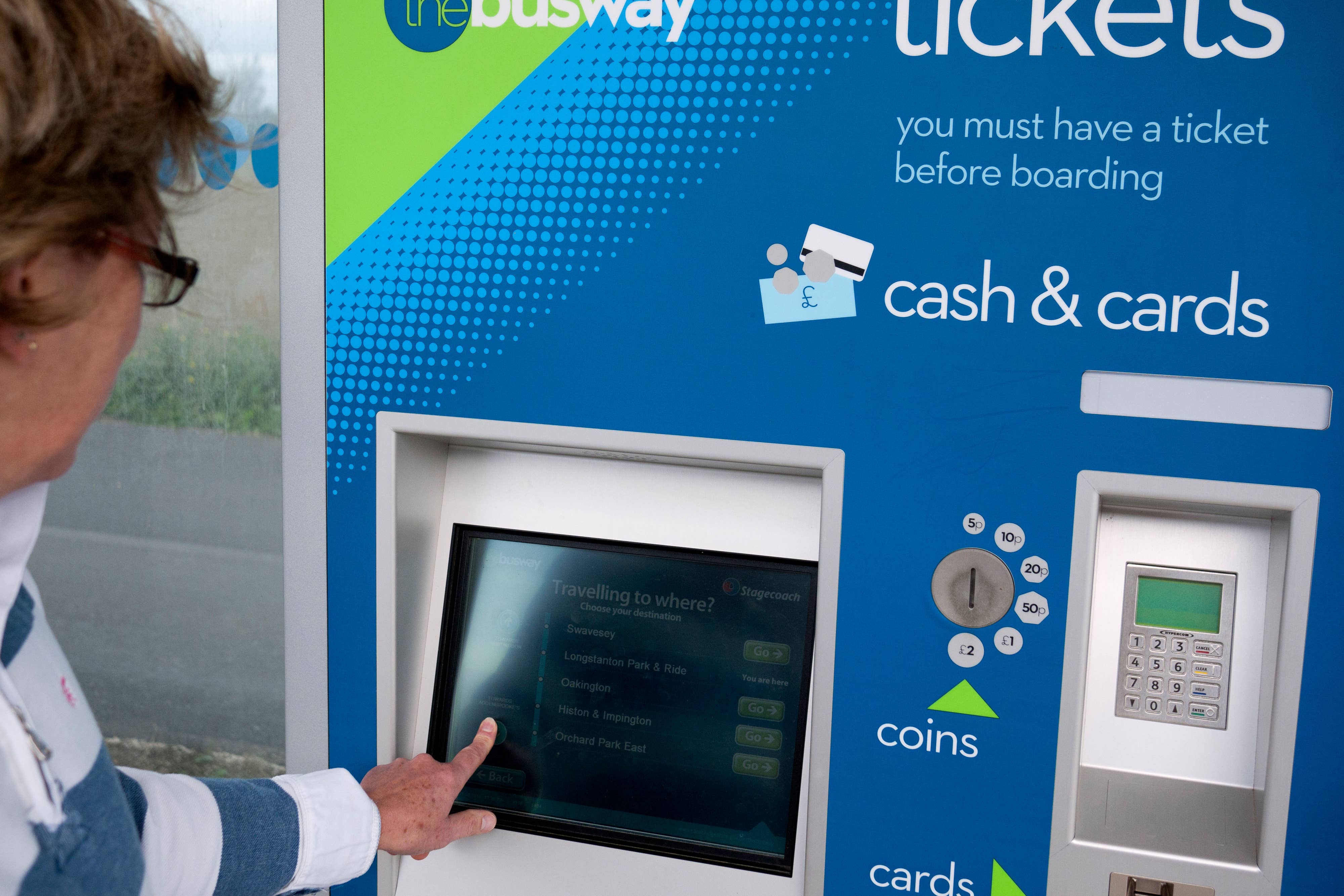Public transport fare zones should be considered across England – peers
A new report from the House of Lords Built Environment Committee stated that such a measure would ‘increase the attractiveness of public transport’.

Your support helps us to tell the story
From reproductive rights to climate change to Big Tech, The Independent is on the ground when the story is developing. Whether it's investigating the financials of Elon Musk's pro-Trump PAC or producing our latest documentary, 'The A Word', which shines a light on the American women fighting for reproductive rights, we know how important it is to parse out the facts from the messaging.
At such a critical moment in US history, we need reporters on the ground. Your donation allows us to keep sending journalists to speak to both sides of the story.
The Independent is trusted by Americans across the entire political spectrum. And unlike many other quality news outlets, we choose not to lock Americans out of our reporting and analysis with paywalls. We believe quality journalism should be available to everyone, paid for by those who can afford it.
Your support makes all the difference.Public transport fare zones should be considered for towns and cities across England to boost passenger numbers, according to peers.
A new report from the House of Lords Built Environment Committee stated that such a measure would “increase the attractiveness of public transport to passengers”.
It would also make it “considerably easier to deliver contactless ticketing”, the study stated.
Former Transport for London (TfL) deputy chairman Lord Moylan, who chairs the committee, said the introduction of zonal fares in the capital in 1981 “transformed the ticketing experience” and has proven “very popular and effective”.
He told the PA news agency that the system makes passengers “feel comfortable”.
He continued: “They feel they know the system and they feel that they don’t have to negotiate every journey, which of course with a traditional fares system you almost always are.
“There has been a much happier experience for passengers and it has attracted them more effectively onto public services.
“Rolling that out – not in every place necessarily – where you have a remotely integrated transport system could be a very effective way of making passengers comfortable.”
The cross-party committee urged the Government to evaluate the costs and benefits of implementing “a multimodal zonal ticketing system” for large towns and cities in England.
TfL uses nine fare zones which determine the price of journeys by London Underground, Docklands Light Railway, the Elizabeth line and mainline rail services.
Zone one covers the centre of the capital, while zone nine includes locations such as Brentwood, Essex and Chesham, Buckinghamshire.
The committee also warned that the end of coronavirus support for bus operators in England – planned for March 2023 – could lead to around a fifth of services being axed.
The Government must take action to ensure that the provision of a good standard of bus services is maintained: there is a risk that cutting services could lead to a downward spiral of steadily reducing demand
This “risks hitting the areas most in need of further economic development hardest”, the report stated.
“The Government must take action to ensure that the provision of a good standard of bus services is maintained: there is a risk that cutting services could lead to a downward spiral of steadily reducing demand.”
The report also urged the Government to publish its proposed review of the benefits and costs of providing concessionary travel to different groups.
Currently, everyone over the state pension age of 66 or with an eligible disability is entitled to apply for free travel on local bus services between 9.30am and 11pm on weekdays and at any time on weekends or bank holidays.
David Renard, transport spokesperson for the Local Government Association, which represents more than 350 councils in England and Wales, said: “Several councils already see the benefits of fare zoning in their areas.
“The benefits of fare zoning could reach many more people if the Government were to provide additional powers.
“A greater role for councils in local rail services, a through ticketing system and greater franchising powers would help councils everywhere boost public passenger numbers.”